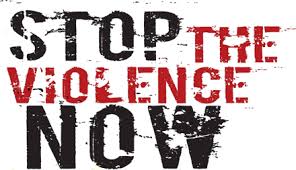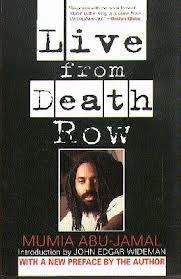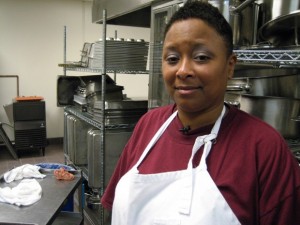Paula Cooper, Masked Racism, and Prison Education: Reflections on Neoliberalism and the Prison Industrial Complex
By j.n. salters
 More and more I find myself questioning the kind of democracy we live in. I have just turned on the television to discover that at least 46 people were shot over the weekend of June 16, 2013 in Chicago—America’s third-world “Windy City” whose murder rate tops the Afghanistan death toll. The same city that is closing 54 public schools. I open the newspaper to learn that the racial disparity in federal crack cocaine cases continues to worsen under the Obama administration. I type in “prison industrial complex” in a search engine to confirm that the United States remains the country with the highest incarceration rate in the world—with over 70 percent of the nearly two million incarcerated being people of color.
More and more I find myself questioning the kind of democracy we live in. I have just turned on the television to discover that at least 46 people were shot over the weekend of June 16, 2013 in Chicago—America’s third-world “Windy City” whose murder rate tops the Afghanistan death toll. The same city that is closing 54 public schools. I open the newspaper to learn that the racial disparity in federal crack cocaine cases continues to worsen under the Obama administration. I type in “prison industrial complex” in a search engine to confirm that the United States remains the country with the highest incarceration rate in the world—with over 70 percent of the nearly two million incarcerated being people of color.
Nonetheless, nothing forced me to question the current state and future of American democracy as did the irate comments posted underneath the recent Huffington Post article “Paula Cooper Free: Indiana Woman Sentenced to Die at 16 is Released.” Paula Cooper—the African-American woman once infamous for being the youngest person on death row when she was sentenced to death at 16 for the 1985 murder of Ruth Pelke—was released from prison on June 17, 2013. While Cooper’s initial sentence almost thirty years ago sparked international protests and a plea for clemency from Pope John Paul II, her premature release generated pure outrage, as evident by the nearly 3,000 comments underscoring Cooper’s innate criminality (“black murderous thug…I bet she will be in trouble again”) and expressing profound disdain at Cooper’s ability to obtain a bachelor’s degree while imprisoned (“I have to pay student loans for the next 20 years and a murderer gets her college education for free… Disgusting”).
As political activist and scholar Angela Davis observes in Abolition Democracy: Beyond Empire, Prisons, and Torture, “Democratic rights and liberties are defined in relation to what is denied to people in prison. So we might ask, what kind of democracy do we currently inhabit?”[i] After reading hundreds of comments loathing the notion that a “murderous, gang-banging thug” could obtain a “college degree in prison while the average law-abiding, productive student who wants to be an asset to society has to take out loans in order to afford college,” I would reply that we currently inhabit a flawed racial, neoliberal capitalist conception of democracy, in which race is invisibilized while racialized oppression continues to deny people their freedom and access to public goods while intensifying structures of racial (and class) inequality. [ii]
Take, for example, the following comments found alongside the HuffPost article:
I’m finishing off pay 100k for my daughters college loans so that she doesn’t have this additional burden when she graduates. This piece of social flotsam, murders someone, goes to jail, gets three free meals a day, gets a free exercise program, gets heat, light, and electricity AND gets a free college education. There is something seriously wrong with this picture.
This animal brutally kills a sweet, elderly woman and not only walks free, but has a bachelors degree thanks to me and other taxpayers. I want to vomit.
I guess now she can head up some company as the new CEO !!!
This monster should have been hanged 27 years ago. US law system is a joke.
If she had a son, he’d look just like Trayvon. this feral beast should die in prison.
Like most marginalized persons, Paula Cooper has been deemed disposable, a second-class citizen, a “beast,” a waste of tax dollars and educational resources. Still, it is much more than that. Notice how deeply entrenched racism is in these statements, much like it is embedded in neoliberalism and the prison industrial complex.[iii] Not only is it evident in the use of a hanging metaphor (“This monster should have been hanged 27 years ago”)—which alludes to lynching, linking the antebellum mode of racialized violence to its contemporary substitute, capital punishment. It is also apparent in the covert use of phrases such as “monster,” “social flotsam,” and “feral beast,” which function much like the word “criminal”—as neoliberalist rhetorical stand-ins for overt racism and racial slurs in the age of colorblindness.[iv] Unlike the Jim Crow period, during which white Americans openly expressed their racial attitudes, many have now turned to racially coded rhetoric, which allows racists to somewhat “hide” their prejudice, creating subtle, “reasonable” racism while still criminalizing blacks and expressing resentment toward people of color (“If she had a son, he’d look just like Trayvon. this feral beast should die in prison”).[v]
Despite the numerous studies indicating that higher education in prison programs reduce recidivism and translate into reductions in crime and savings to taxpayers or that our taxes actually fuel the multibillion-dollar prison industrial complex or that sentenced inmates are required to work for as low as 12 cents an hour (when actually doing enough work to pay their own tuition), commenters still proclaim to be angry about their “taxes.” They insist that Paula Cooper is not only a “murderer” and “thug,” but also a thief of the American neoliberal imaginary, killing and “stealing” our tax dollars to earn a college degree (“This animal brutally kills a sweet, elderly woman and not only walks free, but has a bachelors degree thanks to me and other taxpayers. I want to vomit”).
In truth, they are not angry about their tax dollars. Rather, they are angry at the criminal justice system for defying the racist neoliberal conception of freedom, which eliminates democratic idealism and governmental intervention at the expense of public goods and the welfare of the poor and people of color. They are angry at the prison industrial complex for temporarily failing to realize its propagandist goal of making citizens “think that their own rights and liberties are more secure”[vi] when people like Cooper (or “feral beasts”) are locked away and treated like the animals they are. How could the criminal justice system possibly allow an inherent criminal the right to learn and earn a diploma? To potentially better her circumstances and illustrate the correlation between education and incarceration? How dare the state hypothetically help a poor black woman secure a job or spot in a graduate program at the expense of a white American? Prisons are supposed to reduce crime and supply work, not supply criminals with the tools to overcome the system.
I imagine the reasons that many despise Paula Cooper and correctional education (as well as higher education more generally) are akin to the reasons they despise welfare programs and recipients (i.e., Ronald Reagan’s mythical “Welfare Queen” from the South Side of Chicago with “80 names, 30 addresses, 12 Social Security cards…”). They need a villain, a new scapegoat for this neoliberal crisis to legitimate excessive punitive practices and project their own fears and angers (“nayjog06’s [a HuffPost commenter] law abiding, non-criminal son has to pay off huge student loans, yet this murdering piece of garbage gets a FREE college education. And you don’t see anything wrong with that”). And, what better scapegoat than a vulnerable “black woman criminal” (a term many would deem redundant)?
“I guess now she can head up some company as the new CEO !!!” I woefully snickered when I read that comment. A black woman with a felony with “Chief Executive Officer” in her title? I recall the study in which a white job applicant with a felony conviction fared just as well, if not better, than a black applicant with a clean background. Black people with clean backgrounds can’t even get jobs. The black unemployment rate is at 13.5 percent, almost double that of the overall unemployment rate. To insinuate that Paula Cooper’s prison education places her in a more advantageous position in relation to her white counterpart is absurd and reminiscent of the arguments made by affirmative action opponents, who contend that race-based affirmative action policies are gratuitous and divisive (despite the reality that people of color continue to “lag well behind whites in virtually every area od social life”[vii]).
 In Live From Death Row, former journalist and political activist Mumia Abu-Jamal challenges the contemporary dismantling of prison education programs, and asks: “What societal interest is served by prisoners who remain illiterate? What social benefit is there in ignorance? How are people corrected while imprisoned if their education is outlawed? Who profits (other than the prison establishment itself) from stupid prisoners?”[viii]
In Live From Death Row, former journalist and political activist Mumia Abu-Jamal challenges the contemporary dismantling of prison education programs, and asks: “What societal interest is served by prisoners who remain illiterate? What social benefit is there in ignorance? How are people corrected while imprisoned if their education is outlawed? Who profits (other than the prison establishment itself) from stupid prisoners?”[viii]
Neoliberalism profits. Private corporations profit.[ix] The wealthy profit. The more vital, although often unasked, question is, who suffers? And the answer is the poor, the imprisoned, people of color. A true democracy that enables all citizens to exercise their individual and political rights suffers. Collective freedom suffers. As cultural critic and professor Henry A. Giroux notes in “Angela Davis, Freedom and the Politics of Higher Education,” collective freedom links education “to the struggle for a democratic conception of community, one that is inclusive and provides decent health care, housing, food and education, while abolishing the prison-industrial complex and the ever expanding punishing state. Collective freedom provides the basic conditions for people to narrate their own lives, hold power accountable, and embrace a capacious notion of human dignity.”
The HuffPost commentators, like much of America, are committed to a “particular version of democracy represented by U.S. capitalism”[x] that seeks to flourish at the expense of the poor and marginalized—a version of democracy that embraces the neoliberal conception of freedom at the expense of a true democratic understanding of freedom. They view prisons much like slave masters once viewed plantations, as spaces to profit off of and punish people of color rather than rehabilitate and educate inhabitants. Like former slave masters upon receiving news of emancipation, they cannot envision a legal system or society defined by racial equality.[xi] Thus, they loathe educational programs behind bars for their potential to turn incarceration into a transformative experience. As Angela Davis affirms in Are Prisons Obsolete?, contemporary disdain for prison educational programs is “indicative of the official disregard today for rehabilitative strategies, particularly those that encourage individual prisoners to acquire autonomy of the mind.”[xii] The majority of society fears what might happen if we were to treat “criminals” like human beings and engage their minds. They are afraid that their “tax dollars” might potentially generate another Malcolm X—who noted in his autobiography that because of his prison education, “months passed without my even thinking about being imprisoned. In fact, up to then, I never had been so truly free in my life.”[xiii]
As former Black Panther Edwin “Eddie” Ellis remarks in the film The Last Graduation: The Rise and Fall of College Programs in Prison, “Prisoners very early recognized the fact that they needed to be better educated, that the more education they had, the better they would be able to deal with themselves and their problems, the problems of the prisons and the problems of the communities from which most of them came.”[xiv] Educated prisoners, in theory, could dismantle the neoliberal prison industrial project, which flourishes on and sustains the racism that continues to entrench the social, political, economic, and ideological landscapes of American society and impede radical social change. Proponents of neoliberalism are afraid that educated anti-capitalist inmates might debunk the meritocracy myth that claims that systematic inequality can be overcome by simply pulling oneself up by one’s bootstraps and other mythical notions of self-sufficient individualism. Or worse, enlightened prisoners could potentially expose the ways in which America deploys mass imprisonment, mythical black criminality, and other forms of social control to hide the real social problems—the unequal distribution of wealth and power, unemployment, homelessness, illiteracy, health disparities, etc.
In the words of Angela Davis, “prisons do not disappear problems, they disappear human beings. And the practice of disappearing vast numbers of people from poor, immigrant, and racially marginalized communities has literally become big business.”[xv] This is not to dismiss Paula Cooper’s actions, but to remind us that in a true democracy, all citizens—regardless of race, gender, class, sexuality, or criminal status—are human beings entitled to public goods, such as education, healthcare, food, employment, and decent social protections. As evident by the HuffPost comments, as well as the persistent school closings and prison openings in cities such as Philadelphia and Chicago and the ever-expanding prison industrial complex, too many of us have consented to a flawed conception of neoliberal democracy that essentializes the links between race, crime, and punishment and fails to recognize the humanity of all people.
[i] Angela Y. Davis, Abolition Democracy: Beyond Empire, Prisons, and Torture (New York: Seven Stories Press, 2005), p. 46.
[ii] According to Henry A Giroux, “The current assault on higher education by the apostles of neoliberalism and religious fundamentalists makes clear that it should not be harnessed to cost-benefit analyses or the singular needs of corporations, which often leads to the loss of egalitarian and democratic pressures. Universities should be about more than developing work skills. They must also be about producing civic minded and critically engaged citizens – citizens who can engage in debate, dialogue and bear witness to a different and critical sense of remembering, agency, ethics and collective resistance. Universities are some of the few places left where a struggle for the commons, for public life, if not democracy itself, can be made visible through the medium of collective voices and social movements energized by the need for a politics and way of life counter to authoritarian capitalism.” Henry A. Giroux, “Angela Davis, Freedom and the Politics of Higher Education,” Truthout (April 9, 2013).
[iii] Neoliberalism refers to a set of economic and political policies, as well as a dominant ideology, that liberates “free” enterprise from governmental interference at the expense of collective freedom and social welfare. In the words of Angela Davis, “Neoliberalism sees the market as the very paradigm of freedom and democracy emerges as a synonym for capitalism, which has reemerged as the telos of history.” Angela Y. Davis, “Recognizing Racism in the Era of Neoliberalism,” Truthout (May 6, 2013); excerpted from Angela Y. Davis, The Meaning of Freedom: And Other Difficult Dialogues (San Francisco, CA: City Lights Books, 2012).
[iv] See, for example, Eduardo Bonilla-Silva, “‘The New Racism,’ Color-Blind Racism, and the Future of Whiteness in America” from White Out: The Continuing Significance of Racism, edited by Ashley W. Doane and Eduardo Bonilla-Silva (London: Routledge, 2003).
[v] For more in-depth discussion on “rational” racism and other forms of flexible-racist repertoire, see Dinesh D’Souza, The End of Racism: Principles for a Multiracial Society (New York: The Free Press, 1995).
[vi] Angela Y. Davis, Are Prisons Obsolete? (New York: Seven Stories Press, 2011), p. 14.
[vii] Eduardo Bonilla-Silva, Racism Without Racists: Color-blind Racism and the Persistence of Racial Inequality in the United States (Lanham, MD: Rowman & Littlefield, 2010), pp. 1-2.
[viii] Mumia Abu-Jamal, Live from Death Row (New York: Addison-Wesley Publishing Company, 1995), pp. 65-67.
[ix] According to Eve Goldberg and Linda Evans, “For private business, prison labor is like a pot of gold. No strikes. No union organizing. No health benefits, unemployment insurance, or workers’ compensation to pay. No language barriers, as in foreign countries. New leviathan prisons are being built on thousands of eerie acres of factories inside the walls. Prisoners do data entry for Chevron, make telephone reservations for TWA, raise hogs, shovel manure, make circuit boards, limousines, waterbeds, and lingerie for Victoria’s Secret—all at a fraction of the cost of ‘free labor.’” Quoted in Angela Y. Davis, “Masked Racism: Reflections on the Prison Industrial Complex,” Colorlines (September 10, 1998).
[x] Davis, Abolition Democracy, pp. 72-73.
[xi] Davis, Prisons Obsolete, p. 23.
[xii] Ibid., p. 57
[xiii] Malcolm X, The Autobiography of Malcolm X (as told to Alex Haley) (New York: Random House, 1965).
[xiv] The Last Graduation, directed by Barbara Zahm. (Zahm Productions and Deep Dish TV, 1997).
[xv] Angela Y. Davis, “Masked Racism: Reflections on the Prison Industrial Complex,” Colorlines (September 10, 1998).
________________________
 j.n .salters is a doctoral student at the Annenberg School for Communication at the University of Pennsylvania interested in the intersections of race, gender, class, and sexuality in rights to privacy, black cultural production, identity politics, sex work, law and criminal justice, and visual culture.
j.n .salters is a doctoral student at the Annenberg School for Communication at the University of Pennsylvania interested in the intersections of race, gender, class, and sexuality in rights to privacy, black cultural production, identity politics, sex work, law and criminal justice, and visual culture.


0 comments